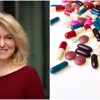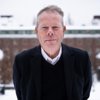-

Heart Monitoring in Breast Cancer – Essential or Excessive?
Trastuzumab and related drugs have transformed breast cancer treatment and dramatically improved survival rates. But the close cardiac monitoring required during treatment can be a heavy burden for both patients and healthcare systems. Dr. Andri Papakonstantinou is working to refine how doctors identify which patients truly need intensive follow-up.
-

Lund University’s record-breaking recruitment – attracting researchers from around the world
The Swedish university is launching its largest international recruitment effort ever, aiming to hire 25 researchers globally, including several in the medical field.
-

Venomaid's rapid test aims to find the right snake bite treatment
Every six seconds, someone on our planet suffers a snake bite, and each time, a race against the clock begins. What kind of snake was it, and which antivenom can help? Danish company Venomaid Diagnostics is working hard to develop solutions to a problem that claims countless lives, especially in tropical countries.
-

Rovtidskriftsjägaren om sin ärkefiende: ”Ondskans imperium”
Han myntade begreppet rovtidskrifter och gjorde ett första försök att kartlägga deras utbredning. Nu berättar bibliotekarien Jeffrey Beall om konsekvenserna det fick för honom. Det här är del fyra i Life Science Swedens artikelserie om rovtidskrifter.
-

Mikael Kubista back with new venture after turbulent exit
Entrepreneur and researcher Mikael Kubista is starting a new company. Now he is also free to comment on the sequence of events that led to him losing ownership of his life's work – the company Tataa Biocenter. “Not only did they take our company away
-

Efter Trumps nedskärningar – nu ska EU locka över amerikanska toppforskare
USA drar in på statliga forskningsanslag – då ser europeiska aktörer sin chans att locka till sig forskarbegåvningar från andra sidan Atlanten.
-

Who pays for Rebecca Doe – and all of us?
Anna Törner on how easily we get used to the idea that healthcare is free - when it really is about how and who pays for it
-

Health politician Lina Nordquist: ”I find it hard to be idle”
She is the pharmacist and researcher who grew tired of the breakthroughs that never materialised and knowledge that never seemed to reach patients, so she decided to make a change from within. Life Science Sweden meets Lina Nordquist, Member of Parliament for the Liberals and their spokesperson on healthcare policy, to have a conversation about reality, politics, and the need for writing.
-

First preterm infants study – a vital step for Neola
After years of developing an advanced lung monitoring system, Neola Medical has received some delightful news: permission to start its first clinical study on preterm born infants.
-

Studie: Upptäckt om tarmceller ger hopp om att bromsa Crohns sjukdom
Forskare vid Göteborgs universitet har upptäckt ett nytt sätt att angripa Crohns sjukdom. Det handlar om att reparera tarmcellernas skyddsbarriär för att behandla sjukdomen.
-

BD separerar affärsområdet Biosciences – fokuserar på medtech
BD slimmar portföljen och avyttrar affärsområdena bioscience och diagnostik. “Nya BD” ska bli ett helgjutet medicinteknikföretag.
-

Drug development booms in Medicon Valley
When it comes to developing new medicines, the Öresund region is one of the top performers in the EU. Companies working on commission for pharmaceutical companies are highlighted as a success factor. “Everyone has heard of Novo Nordisk, but these companies are unknown to people outside the industry despite being the golden vein of the life science sector,” says Anette Steenberg, CEO of the cluster organisation MVA.
-

Nobel Prize winner Torsten Wiesel turns 100: “Old men like me should use their experience to help the young”
In 1955, a young Torsten Wiesel jumped on a boat to the US and embarked on a fabulous career as a neuroscientist, crowned with a Nobel Prize for his work. Now 100 years old, he looks back on an intense life and his upbringing in Stockholm, Sweden, which shaped his desire to help the vulnerable in society.
-

Innovative start-up helps doctors, scientists and industry balance coagulation risks
For many doctors caring for seriously ill patients, for example, in stroke units and cancer wards, maintaining the life-saving balance between bleeding and thrombosis is an ongoing challenge. In the late 1980s, scientists at Maastricht University in the Netherlands developed an innovative method, the thrombin generation assay (TGA), which provides a complete overview of a physiological process crucial for maintaining normal haemostasis.
-

Carl Borrebaeck – professor and serial entrepreneur with a taste for speed
Award-winning cancer researcher, the founder of many listed companies, and constantly in the academic and commercial spotlight for decades. However, Carl Borrebaeck, Professor of Immunotechnology at Lund, is not yet satisfied. “We have a new, potentially super exciting project in the pipeline,” he says.
-

The life science strategy – what the industry wants
are some of the points that are essential to review.
-

The Swedish Research Council gets go-ahead for more long-term funding
Following a government decision, the Swedish Research Council will soon be able to approve ten-year grant periods for funding research infrastructure, which may affect the giant Max IV project, among others.
-

A new special edition and a new event in Copenhagen – This is happening at Life Science Sweden 2024
The new year brings new features for the readers of Life Science Sweden.
-

Mathias Uhlén’s protein atlas is recognised as a global resource
The Human Protein Atlas is the first database in Sweden to be designated a Global Core Biodata Resource. According to Mathias Uhlén, this is a quality hallmark and an opportunity for additional collaborations.
-

The first drugs to slow down Alzheimer’s – but what does it mean for patients?
New treatments for early Alzheimer’s are bringing hope to thousands of patients and their families. The question is, who will get the treatment, how will the right patients be found in time, and will the healthcare system’s resources be sufficient? Life Science Sweden has spoken to Swedish researchers in Alzheimer’s who voice cautious hope but also see further challenges.
-

Anna Törner: The minute between life and death
“I have never told anyone about this day that happened more than 20 years ago. But I sometimes reflect on what happened, on what might have happened. When I try to understand why I haven’t told anyone, I find the answer: a feeling of shame. There is no forgiveness for something like this, even though it is very human to be distracted for a moment,” Anna Törner writes in a column.
-

Uncertainty about the government’s life science work
The government’s national coordinator for life science, Jenni Nordborg, left her position almost four months ago. No one has yet succeeded her, and now questions are being raised both about the government’s plans for the office and the Swedish life science strategy.
-

The new Astra Zeneca CEO: “An incredibly exciting phase”
Almost 27 years have passed since Per Alfredsson from Södertälje stepped into Astra Zeneca as a newly hired engineer. After countless different roles, including heading the production of the company’s Covid vaccine, he is now advancing to the absolute top.
-

Great Swedish innovations: Eye treatment became a feather in Pharmacia’s cap
From complicated and sometimes risky surgery to a routine procedure. Pharmacia’s injectable Healon revolutionised the field of eye surgery - and is considered by us one of the most important contemporary Swedish innovations in the field of medicine.
Få tillgång till allt innehåll på Life Science Sweden
Ingen bindningstid eller kortinformation krävs
Redan prenumerant? Logga in
Gäller endast personlig prenumeration.
Kontakta oss för en företagslösning.